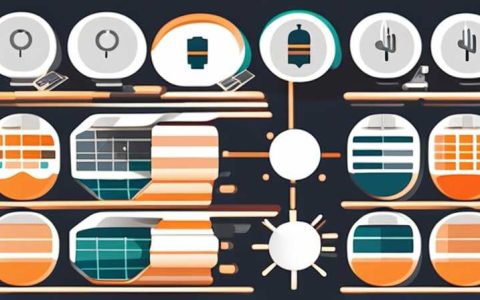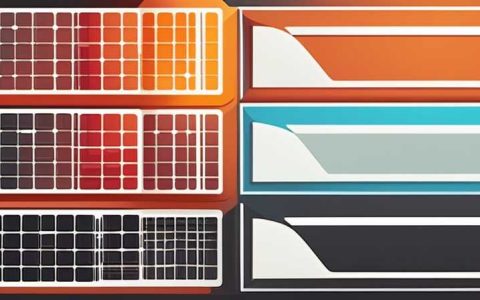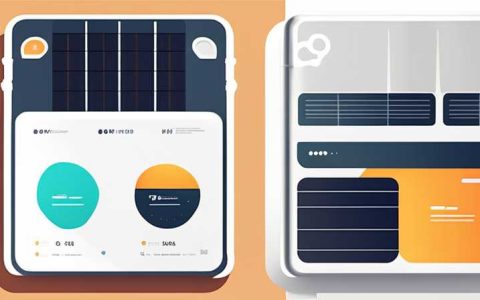<img src=https://nenpower.com/wp-content/uploads/2024/11/image-55623.jpg alt=’Why the solar light won’t turn off?’ />
1. Solar lights may not turn off due to several reasons: a) faulty sensors, b) battery issues, c) excessive or constant light exposure, d) poor installation. A frequent culprit is a malfunctioning sensor, which prevents the light from detecting darkness. When sensors are obstructed or damaged, they fail to relay accurate information about their surroundings, meaning the solar light remains in an ‘on’ state. This can lead to battery drain and hinder the overall effectiveness of the solar light system.
1. FAULTY SENSORS
The sensor mechanism in solar lights plays a vital role, detecting light levels to determine whether it should remain illuminated. This sensor can malfunction for several reasons, including exposure to moisture, dirt accumulation, or even physical damage. When the sensor is compromised, it can prevent the solar light from switching off during daytime, continuing to consume energy unnecessarily.
Moreover, positioning is crucial. If solar lights are not installed correctly—such as placed in shaded areas—they might receive insufficient sunlight to recharge fully, causing dysfunction in their operational capabilities. Sensors require consistent exposure to solar energy to function correctly on a daily cycle.
2. BATTERY ISSUES
Batteries installed in solar lights are pivotal for their performance. Over time, these batteries can degrade, losing their capacity to hold a charge. When this occurs, the solar light may remain on longer than intended or fail to operate efficiently during the night. There are various battery types utilized in solar fixtures, including nickel cadmium (NiCd) and lithium batteries. Each type presents its own unique lifespan and performance metrics.
If batteries are subjected to extreme temperatures, they can further decrease in efficiency. For example, exposure to excessive heat can accelerate deterioration, while frigid temperatures can impede charge retention. Regular maintenance checks on battery performance ensure longevity and optimal functionality.
3. EXCESSIVE OR CONSTANT LIGHT EXPOSURE
Solar light units are designed to harness solar energy to function correctly; however, constantly bright environments can disrupt their switching mechanism. For instance, solar lights positioned near streetlights or bright signs may not detect the absence of daylight. When these lights are continually exposed to ambient lighting, they may fail to turn off, creating the illusion of malfunction.
Even simple factors, such as reflective surfaces nearby, can play a role. Surrounding structures that reflect sunlight can trick the sensor, leading to an ongoing illumination cycle. Consequently, understanding the installation environment can significantly impact the performance of solar lighting fixtures.
4. POOR INSTALLATION
Professional installation is often crucial for solar lights to operate effectively. Installation in overly shaded areas or incorrect angles can nullify their effectiveness. If solar panels are not positioned directly under optimal sunlight, they may not charge adequately during the day, leading to erratic performance and a failure to turn off timely.
Additionally, improper wiring can also lead to connectivity issues. If wires are frayed or connections are loose, the overall system suffers from poor electrical flow, which may cause the lights to behave unpredictably. Collaborating with professional installers ensures that all components are set up correctly.
FAQs
WHY DOES MY SOLAR LIGHT CONSTANTLY TURN ON AND OFF?
Such behavior may indicate a malfunctioning sensor or battery issues. Specifically, if the sensor fails to detect daylight properly, the light could switch erratically between its on and off states. Additionally, if the battery is not adequately charged or is old and degraded, it might struggle to maintain electrical flow, influencing the operational patterns. To diagnose this, inspecting both the sensors and battery health should be the first step. Ensure regular cleaning of the sensor area to prevent dust and debris disturbances, also checking whether the solar panel receives optimal sunlight. Correcting any issues found here is typically followed by consistent performance.
HOW LONG DO SOLAR LIGHT BATTERIES LAST?
On average, the lifespan of solar light batteries ranges from 1 to 3 years, contingent upon battery type and environmental conditions. NiCd batteries generally have a shorter duration compared to lithium-based options, yet they remain inexpensive and easy to replace. Environmental factors such as extreme temperatures, humidity, and even frequency of use influence battery longevity. Regular maintenance, including checking connections and ensuring that batteries are charged properly, can help maximize performance. Upgrading to higher-quality batteries may also make a significant difference in lifespan, contributing to sustained efficiency.
IS IT NORMAL FOR SOLAR LIGHTS TO TURN OFF DURING CLOUDY DAYS?
Yes, it is completely normal for solar lights to have diminished functionality during overcast or rainy weather. Solar panels depend heavily on sunlight for energy absorption, and cloudy conditions substantially reduce efficiency. When sunlight is insufficient, solar lights may not stay on as long into the night or may turn off earlier. Installing solar panels at optimal angles and locations, however, can enhance light absorption even during less-than-ideal weather conditions. Additionally, some brands are designed with larger solar panels that can capture more energy, providing extended operational capabilities, even under fluctuating conditions.
Final Thoughts
Understanding the reasons why solar lights may not turn off is essential for consumers looking to maintain their outdoor lighting systems. Through comprehending the intricacies of sensor functions and their relationships with power sources, as well as installation strategies, individuals can achieve a consistent and reliable lighting effect. Furthermore, basic maintenance—including periodic checks of battery performance and cleaning of sensors—plays a pivotal role in sustaining functionality.
It is important to recognize that failing components, whether they be sensors or batteries, can lead to inefficiencies that ultimately impact the operational integrity of solar lights. By proactively addressing these potential issues, one can mitigate problems before they escalate, ensuring that solar lights function as intended.
Thus, staying informed on installation practices and recognizing environmental factors can significantly enhance solar lights’ performance over time. By maintaining control over these aspects, the benefits of renewable energy solutions can easily translate into a practical and effective outdoor lighting experience for long-term satisfaction.
Original article by NenPower, If reposted, please credit the source: https://nenpower.com/blog/why-the-solar-light-wont-turn-off-2/











